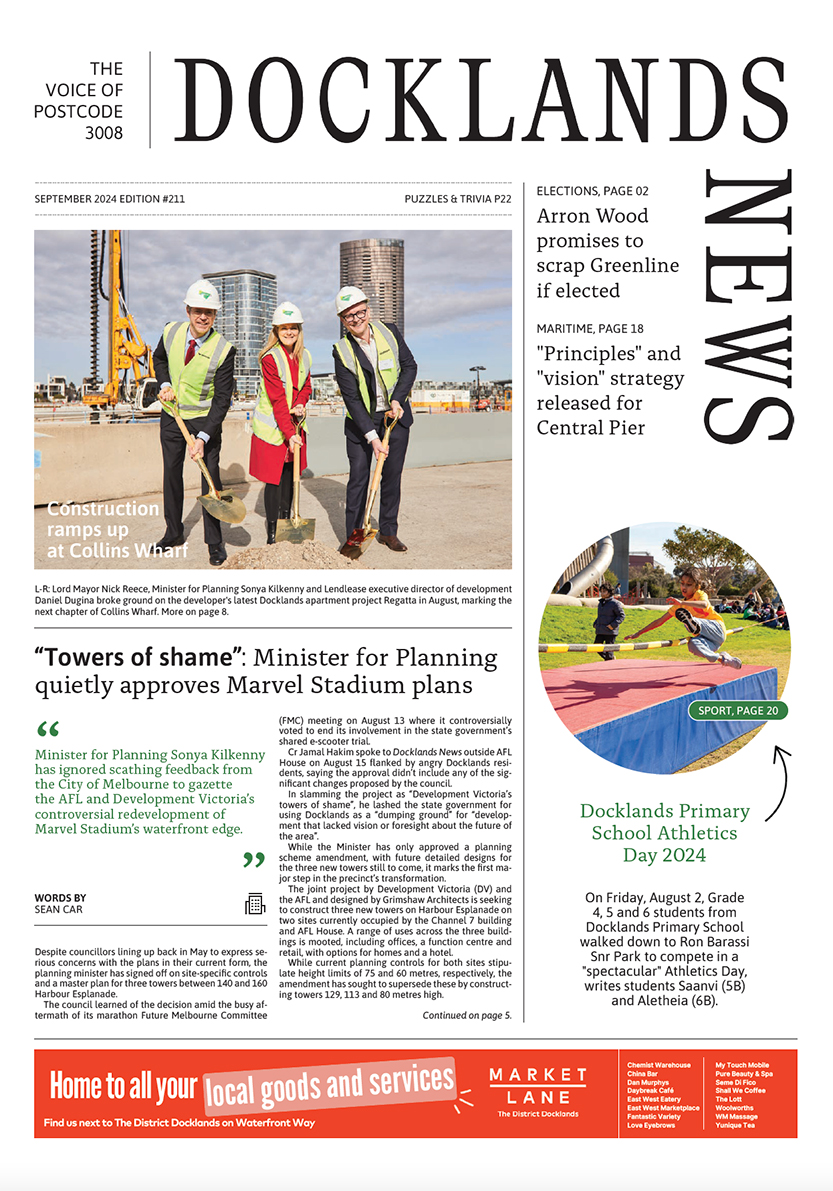Locals tell council: bring Docklands together and boost business
Housing affordability, homelessness services, a need for more green and open spaces, and better roads and transport options have topped a City of Melbourne survey as the community’s top priorities.
The pulse check led by Participate Melbourne was conducted between February 21 and March 31 using in-person events and online portals, returning nearly 4500 responses.
Docklands locals said creating a family-friendly suburb and improving public safety were priority issues, with the number of homeless people in the area also listed as a concern.
Residents said Docklands lacked a sense of community, calling for more green spaces like playgrounds, parks and gardens to bring people together.
The survey found locals felt more support was needed to grow the local economy and attract more restaurants and shops to the area.
One Docklands survey respondent said, “At the moment the area is suffering post-COVID and many workers are just here 9 [am] to 5 [pm] and then a lot of things shut down.”
“The area is beautiful but just can’t seem to get any major attractions that would bring people to the area to spend money.”
When broken down by neighbourhood, the survey found a need for more green spaces and events to improve community connectivity were priorities across each of the six areas.
Carlton respondents also called on the council to provide more support for local business.
In addressing the results at the August 13 Future Melbourne Committee (FMC) meeting, Cr Dr Olivia Ball said, “I hope we are doing something sector-leading in this work of constantly checking in with the public.”
Cr Dr Ball said the survey had achieved “the biggest result in the history of Participate Melbourne.”
The survey prompted at least 290 responses per neighbourhood, with higher density urban areas the most likely to take part.
Some 61 per cent of respondents were women, 33 per cent were born overseas, 25 per cent were aged under 30, and 16 per cent identified as LGBTQIA+, while nearly 12 per cent were local business owners.
The Wurundjeri Woi-wurrung Cultural Heritage Aboriginal Corporation was consulted as part of the survey process.
Areas surveyed included Carlton, the CBD, Docklands, East Melbourne, Fishermans Bend, Kensington, North Melbourne, Parkville, Southbank, South Yarra and West Melbourne.
The City of Melbourne plans to conduct regular neighbourhood pulse checks as part of its Neighbourhood Planning Framework to inform future council budgets and the next four-year Council Plan.
Locals can sign up to receive updates when local council surveys are launched. •

Cr Jamal Hakim pushing to make history in Melbourne








 Download the Latest Edition
Download the Latest Edition